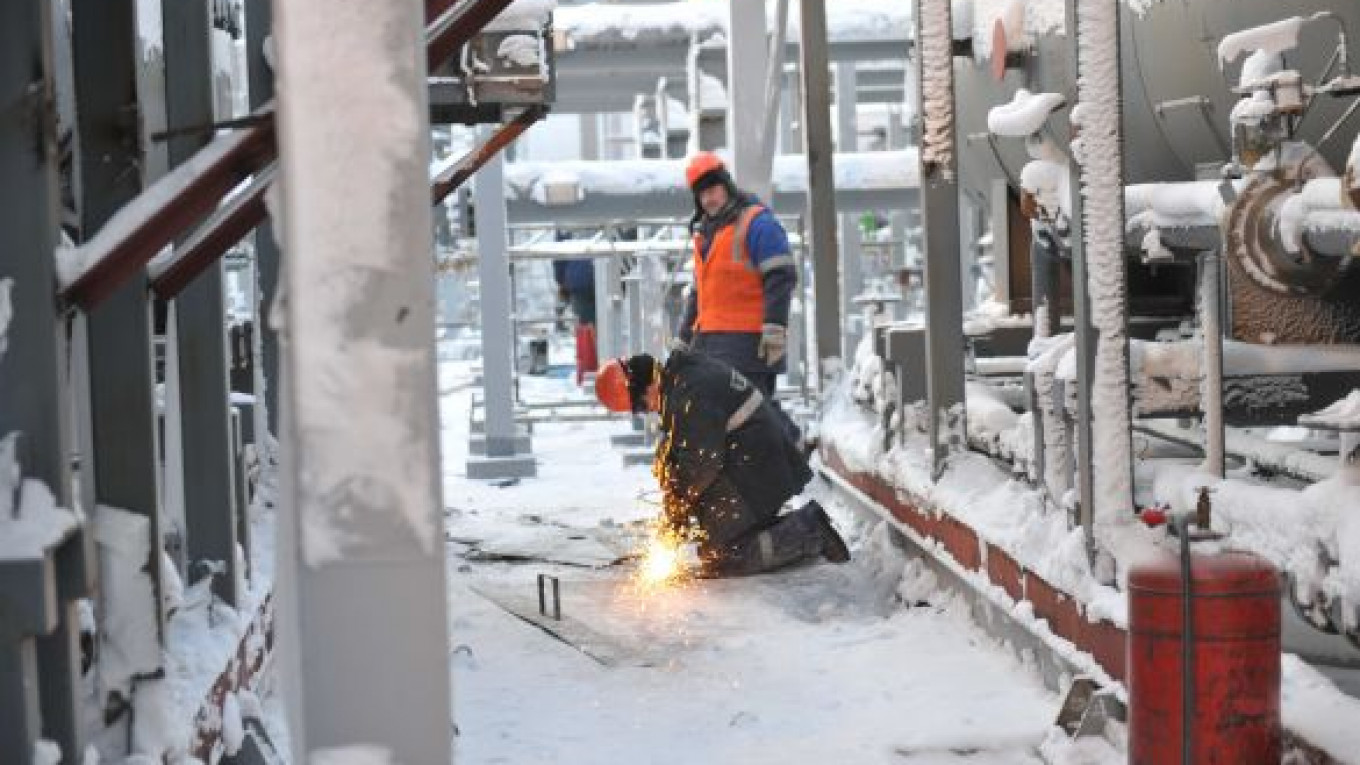LONDON — Russia widened its lead over Norway as Europe's biggest gas supplier in 2013, with demand bolstered by a bitterly cold winter helping sales of its discounted gas while production problems trimmed Norwegian output.
Russia, whose capacity to supply gas to Europe far outweighs that of Norway, lured back customers after issuing multi-billion euro price discounts.
It is also boosting production from its huge Bovanenkovo gas field.
In 2012, Norway spooked its Russian rival with an aggressive pricing policy selling gas to European buyers at cheaper spot-indexed prices and forcing the gas export giant to react.
Fired up to defend its dominant position in Europe, Russian exporter Gazprom agreed to loosen its pricing policy and paid more than $4 billion in the first half of 2013 to European clients who had complained about expensive gas prices linked to the oil market.
On the back of the price cuts, cold weather and more production, Gazprom's supplies to Europe including Turkey rose 16 percent to a record high 161.5 billion cubic meters last year from 138 bcm in 2012 while Norway's fell by 5 percent to 102.5 bcm.
Excluding Gazprom's sales to Turkey, Russia supplied about 133 bcm to Europe in 2013, widening its lead over Norway to about 30 percent.
Russia supplies about a quarter of Europe's gas needs and is the dominant, sometimes sole, supplier in many former Soviet bloc countries, triggering a European Commission probe into whether Gazprom has blocked rivals and over-charged customers in Eastern Europe.
The European Union is also seeking alternatives to Russian gas supplies in the eastern Mediterranean and in Central Asia.
Norway's gas exports hit a record high in 2012 of 107.6 bcm due to spot-indexed pricing and higher production from its biggest gas field.
That year, higher exports had allowed it to edge within just a few percentage points of Russian volumes shipped to Europe, excluding Turkey.
However, the latest export figures show that fortunes reversed in 2013 and Russia extended its export volume lead over Norway to 30 percent.
With liquefied natural gas imports to Europe down sharply last year due to competition from Asia, Russia opened its taps to fill the gap, while Norway struggled with lower output as Statoil's huge Troll field suffered technical setbacks.
Russia has production capacity to supply 200 billion cubic meters to Europe annually versus Norway at 105 bcm to 115 bcm, Energy Aspects analyst Trevor Sikorski said.
"More than half of the increase in Russian exports to Europe last year was due to the particularly cold winter, which depleted storage stocks that had to be replenished during the summer with Russian gas," he said.
Russia helped fill a LNG supply gap last year with pipeline supplies as Middle Eastern producers diverted cargoes from Europe to higher-paying markets in Asia.
Europe's daily LNG terminal sendout halved to around 100 million cubic meters per day in 2013 versus 2012, data from Thomson Reuters Point Carbon showed.
Norway, on the other hand, experienced ongoing compressor problems at Troll, which cut into production levels.
The head of Gassco, the Norwegian gas grid operator, said Norway's decline in exports did not reflect a new trend.
"Norway's gas exports depend on many elements in an interplay between production, transport capacity, resource availability, the market and so forth," said Gassco chief executive Brian Bjordal.
Forecasts for this year show Russian exports to Europe are likely to decline, unless there is another cold winter, analyst Sikorski said.
Gazprom's position could face increasing challenges from 2016, when Asia is likely to source LNG from new Australian facilities, which means more Middle Eastern supply will be available for European buyers.
A Message from The Moscow Times:
Dear readers,
We are facing unprecedented challenges. Russia's Prosecutor General's Office has designated The Moscow Times as an "undesirable" organization, criminalizing our work and putting our staff at risk of prosecution. This follows our earlier unjust labeling as a "foreign agent."
These actions are direct attempts to silence independent journalism in Russia. The authorities claim our work "discredits the decisions of the Russian leadership." We see things differently: we strive to provide accurate, unbiased reporting on Russia.
We, the journalists of The Moscow Times, refuse to be silenced. But to continue our work, we need your help.
Your support, no matter how small, makes a world of difference. If you can, please support us monthly starting from just $2. It's quick to set up, and every contribution makes a significant impact.
By supporting The Moscow Times, you're defending open, independent journalism in the face of repression. Thank you for standing with us.
Remind me later.






